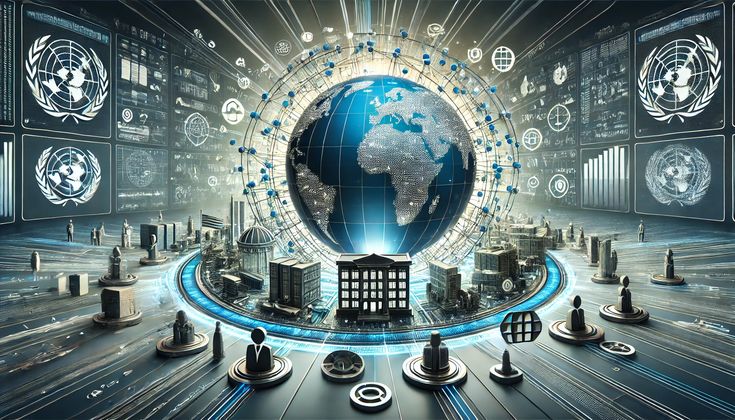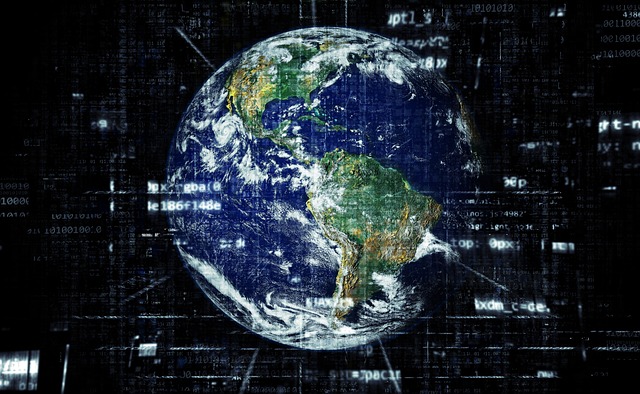The Importance of Global Cooperation: Collective Solutions to Future Challenges
Introduction: The Imperative of Global Cooperation
Global cooperation is indeed an indispensable aspect of human development that has become the key to our survival and prosperity in today’s interconnected world. When we jointly analyze future trends, not only are our predictions more accurate, but we are also better prepared to face these challenges. In this light of global cooperation, we can not only find solutions to current problems but also develop effective strategies to address the problems we will face in the coming times. This cooperation is also a means of creating harmony between different countries, cultures and ideologies, which promotes peace and stability around the world. In the present era, while the challenges are also global in nature, it is also necessary to find solutions to them at the global level. No country, no matter how powerful, can alone cope with the problems that face all of humanity. This is the fundamental point that makes global cooperation indispensable.
Predicting Future Trends: A Multi-faceted Process
Predicting future trends is not an easy task, but rather an extremely complex and multi-faceted process that requires an in-depth study of economic, social, technological, environmental and political factors. When different countries and institutions work together, their different perspectives and experiences make the process more comprehensive and accurate. For example, when the technological expertise of Europe, the rapid development of Asia, and the resources of Africa are combined, our understanding of the future increases significantly. These joint efforts not only alert us to upcoming threats but also prepare us to deal with them in advance. In the modern era, data science and artificial intelligence have made this process easier, but the proper use of these technologies is also not possible without global cooperation. The exchange of data between different countries, the sharing of research methods, and the joint interpretation of results are the processes that enable us to make accurate predictions about the future.
Building Stronger Societies: The First Goal of Global Cooperation
Global cooperation is crucial for building stronger societies. When different countries share their experiences and resources, each society learns from the experiences of others and overcomes its weaknesses. International cooperation is indispensable to confront global challenges such as natural disasters, economic crises, or health emergencies. For example, the COVID-19 pandemic taught us that no country can face such a global challenge alone. Global cooperation in the development of vaccines, the exchange of treatment methods, and the provision of medical supplies helped to overcome this crisis. Similarly, global cooperation is essential to address the impacts of climate change. Developed countries must help developing countries so that they too can meet these challenges. This cooperation is not only for the good of humanity but is also essential for global stability.
Building Inclusive Societies: The Second Goal of Global Cooperation
Global cooperation is an important tool for building inclusive societies. When different cultures, ideologies, and practices come together, a diverse society emerges that ensures equal opportunities for everyone. Through global cooperation, we can not only reduce economic disparities but also promote social justice. International partnerships in the areas of education, health, and employment not only help developing countries but also provide new markets and opportunities for developed countries. Intercultural dialogue, educational exchange programs, and efforts at interfaith harmony are all possible only through global cooperation. This cooperation not only connects societies, but it also plays an important role in establishing world peace.
Building Sustainable Societies: The Third Goal of Global Cooperation
Global cooperation is also needed to build sustainable societies because environmental challenges are not limited to the borders of any one country. Solutions to problems such as climate change, air pollution, and the conservation of natural resources can only be achieved through global cooperation. The Paris Agreement is a prime example of this, in which almost all countries have set common goals for environmental protection. International cooperation in areas such as renewable energy, water conservation, and waste management not only protects the environment but also opens new doors for economic development. To achieve sustainable development, it is essential that all countries work together and share their resources and knowledge. This cooperation guarantees a better world not only for the current generation but also for future generations.
Technology and Innovation: The Driver of Global Cooperation
Technology and innovation are important drivers of global cooperation. Advanced technologies such as artificial intelligence, blockchain, and the Internet of Things have opened new avenues for global cooperation. These technologies not only facilitate communication but also promote data exchange and joint research. Technical cooperation between different countries not only accelerates development but also paves the way for new inventions and discoveries. Technologies such as open source software, online educational platforms, and virtual conferences have made global cooperation easier than ever before. These technologies not only remove geographical barriers, but also serve as a bridge between different cultures and ideologies.
Education and Research: The Foundation of Global Cooperation
Education and research are the strong foundations of global cooperation. When educational institutions and research centers from different countries work together, not only does knowledge increase, but new ways of using it also emerge. International student exchanges, joint research projects, and inter-university partnerships not only broaden the scope of knowledge but also promote intercultural understanding. This cooperation not only brings progress in the field of science and technology, but it also opens new avenues in the social sciences, humanities, and arts. Global educational cooperation not only enhances the capabilities of individuals, but also plays an important role in the development of entire societies.
Economic Cooperation: The Engine of Global Development
Economic cooperation is a key engine of global development. International trade, investment, and financial cooperation not only promote economic development but also play an important role in the fight against poverty. Through global economic cooperation, developing countries can not only improve their economies but also contribute to the global economy. International financial institutions such as the World Bank and the International Monetary Fund are playing an important role in this regard. This cooperation not only brings economic stability, but is also essential for global peace and prosperity.
Cultural Exchange: The Key to Mutual Understanding
Cultural exchange is an important form of global cooperation that promotes mutual understanding. When people from different cultures come together, not only do their thinking expand, but intercultural tolerance also grows. Cultural exchange through art, literature, music, and sports not only improves relations but also promotes peace and harmony. This exchange not only maintains cultural diversity, but it also gives rise to new creations and innovations. Through cultural exchange, we not only understand other cultures, but also understand our own culture better.
Conclusion: A Journey to a Shared Future
In conclusion, it can be said that global cooperation is the key to our common survival and development. We must work together to build strong, inclusive, and sustainable societies. We must think beyond our borders and work together to meet the challenges of the future. This is the path that can lead us to a better future. Promoting global cooperation is a collective responsibility of all of us. This cooperation is not only a solution to our current problems, but it is also a guarantee of a better world for future generations. We must play our full role in this journey and contribute to building a better world.


